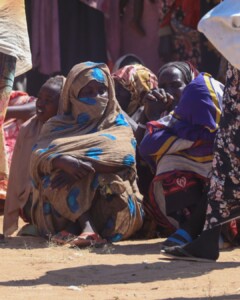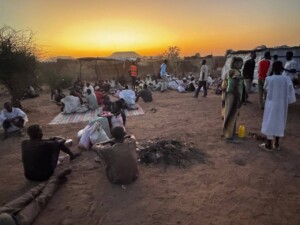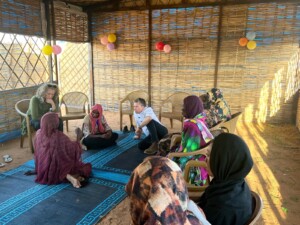Sudan PM Hamdok issues first Emergency Order for 2020
Sudan’s Prime Minister Abdallah Hamdok on Sunday issued Emergency Order No. 1 for the year 2020, after consultation with the Sovereign Council. The order follows Cabinet denouncement of the recent assaults on doctors and health personnel in the country as “disgraceful and shameful”.
 Sudan’s Prime Minister Abdallah Hamdok (SUNA)
Sudan’s Prime Minister Abdallah Hamdok (SUNA)
Sudan’s Prime Minister Abdallah Hamdok on Sunday issued Emergency Order No. 1 for the year 2020, after consultation with the Sovereign Council. The order follows Cabinet denouncement of the recent assaults on doctors and health personnel in the country as “disgraceful and shameful”.
As reported by Radio Dabanga yesterday, the order criminalises attacks on health personnel, smuggling, and illegal hoarding of goods or medicines.
PM Hamdok’s Emergency Order was issued pursuant to the Article 41 of the Constitutional Document for the Transitional Period of 2019, read with the decision of the Sovereign Council No. 225 due to the coronavirus pandemic, read with the provisions of Article 8 (1) of the Emergency Law and the Protection of Public Safety of the year 1997.
The order stipulates that whoever perpetrates any of the following acts is considered committing a crime and shall be punished by the punishments included in the Emergency and Public Safety Act for the year 1979:
1. Assault on the medical and health personnel and the cadres assisting them while carrying out their work.
2. Destruction of health, medical and isolation facilities.
3. Smuggling of persons across the border or helping them to enter the Sudanese territories.
4. Monopolising food or medicines or increasing their prices.
5. Publishing incorrect data or information, including rumours via any of the means of publishing or misleading the authorities about the coronavirus.
6. Contact with infected or suspected persons of compulsory hospitalisation, and directly refusing the treatment or the follow up that is prescribed to them.
7. Refrain from implementing quarantine, preventing the extradition of the infected or suspected persons, or conceal any information regarding the patient or suspected infection case.
8. Refrain to abide by closing of educational institutions, sports houses, clubs, commercial centres, open markets, parks, cabarets, cafes, events halls and any other places specified by the competent authorities that their closure were demanded by the authorities.
9. Being in public places, gatherings or meetings, or holding private or public celebrations or gathering in violation of the anti-gathering decisions issued by the competent authorities.
10. Failure to observe the distances between the persons as prescribed by the competent authorities.
11. Exceeding the number of passengers allowed to be carried on board the vehicle.
12. Violating the measures issued by the Ministry of Health regarding the arrivals from abroad, the countries from abroad, or the affected countries.
13. Refrain from taking appropriate health measures regarding the organisation of markets, roads and public places exempt from closure.
14. Refrain from implementation of the order to remove any temporary buildings, or the destruction of luggage, clothes, or any other tools that their contamination is proved or possible as a result of the pandemic.
15. Refrain from taking the precautionary measures established for crews of ships or aircraft and the like.
16. Leaving during the hours of the ban declared by the competent authorities without reason, necessity or exception.
17. Violation of laws and regulations for burying or transporting the body of any deceased person as a result of the pandemic.
18. Attending health and medical facilities or isolation centres, or meeting patients without requirement or without permission from the competent authorities.
19. Refusing the medical examination which is demanded by the competent authorities.
The police should facilitate the passing of first aid, doctors, health personnel and patients during the hours of curfews without delay and in accordance with the instructions issued in this regard.
The Police and the Public Prosecution may exercise all the powers conferred upon it by the Criminal Procedures Law for the year 1991 in the implementation of orders issued by the competent authority, and without prejudice to the generality of that, the police may:
(A) Close the places related to the violation.
(B) Seize vehicles.
(C) Detain persons.
(D) Arrest persons.
(E) Take all necessary measures to implement the orders of the competent authority.
Notwithstanding, what is stated in Article 7 of the Emergency and Public Safety Law for the year 1997, and in the event of a violation, the public prosecutor or the competent police officer may make settlements to the violators according to the schedule attached to the emergency order.
Lockdown
As reported by this station yesterday, the Sudanese government is planning to declare three weeks of lockdown in Sudan as the number of coronavirus (Covid-19) cases reaches 19.
On Saturday, the Sudanese Ministry of Health reported new cases of Covid-19 confirmed in Sudan, this bring the total to date to 19, up from 15 cases on Thursday.
Radio Dabanga’s editorial independence means that we can continue to provide factual updates about political developments to Sudanese and international actors, educate people about how to avoid outbreaks of infectious diseases, and provide a window to the world for those in all corners of Sudan. Support Radio Dabanga for as little as €2.50, the equivalent of a cup of coffee.












 and then
and then